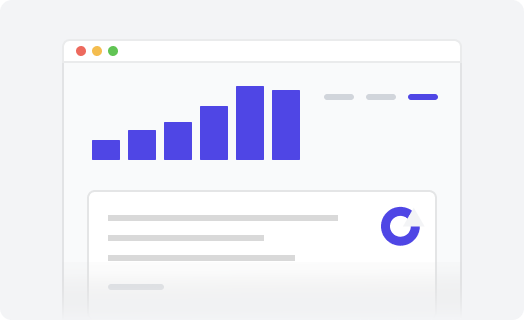OneDayOnly
A data-driven approach to the Zendesk help center to reduce support tickets

About the company
Founded in 2009, OneDayOnly is South Africa's original flash sale website, offering the best deals in the country every single day.
The company is very proud of its customer service, data-driven approach, and help center, which we at Lotus Themes customized.
Challenges
OneDayOnly came to us in 2021 to improve their help center, and now, as loyal customers, they return regularly for additional customizations. The main objectives of the help center project were to:
- — reduce support tickets
- — give the design the same look as the main website
- — make it mobile friendly
- — implement intuitive navigation
There was also one small yet crucial issue — their existing help center was generating confusion. When visitors would put their order numbers into the search bar, they weren’t able to find what they were looking for, which was very frustrating.
Solutions
OneDayOnly chose the Lotus One Zendesk theme for their help center because of its advanced functionality and ease of use.
Lotus Themes’ Alerts extension and other сustomizations were also implemented.
Prominent “Track my order” block
We added the Track my order custom block to the first column below the search bar so that customers don't refer to the help center search to look for their order. Entering their tracking number would be a waste of time since the help center doesn’t house this information. The amount of order number searches immediately decreased:
“I looked at the data manually, and there appears to be more or less a 70% drop in order number searches.”
Dave H., Head of Customer Operations
Alerts extension with important notifications
The Alerts extension on the top of the website helps notify customers about the company’s most important news and promotions.
Branding as on the main website
We preserved the style of the company's main website so that the help center wouldn’t stand out from what customers are used to seeing: a sticky header with a menu where they find today's deals and clearances, as well as subscription options and access to their personal account to the right of the menu. There are also small details, but it’s worth mentioning that the logo placement is on the left, and there’s the same footer as on the main website.
Formatting options simplify navigation
Thanks to formatting options like Accordions, users get a chance to choose the right article with one click on the same page to decide whether it’s helpful — and all without going back and forth between pages.
Customized side navigation with icons
To guide users through the help center content, we customized the Side navigation extension that’s already a feature of the Lotus One theme. Here it is from the right side of the page, displaying options by category. It looks nicer than the basic version because of the icons.
Ticket form reduces ticket volume
Usually, the ticket form looks simple — it is a couple of fields with personal data and the "describe the issue" field. In theory, the customer creates a ticket when they don't find the answer in the help center. But we've decided we’d program the help center to give one last shot in solving the issue before a customer clicks the "send a request" button. After the customer starts to type their question, suggested topics with similar subjects come up, and that directs customers to help center articles. Quite useful, this new look for the ticket form reduces ticket volume in the final stages of the customer’s query.
How a data-driven approach is important for help centers
It was inspiring to work with OneDayOnly, and we were excited to learn about their results. We decided to interview Dave, the company’s Head of Customer Operations, who shared some intriguing insights on help center usage.
At OneDayOnly, they know how to reduce support tickets because they often use statistics to review their data, not just for their help center but for all customer service in general.
“At OneDayOnly, we review data on a weekly basis to see if there's something that needs to change. We also review facts and figures about our help center to be sure that we’re making decisions that are data-driven.”
Dave H., Head of Customer Operations
This is the list of some of the data that the company's customer service tracks:
- — article views
- — article ratings
- — search requests
- — customer satisfaction
- — average resolution time
- — first contact resolution time
We suggested to the OneDayOnly team that they also keep an eye on the ticket deflection rate (or self-service ratio), which allows you to understand how many tickets were closed (deflected) thanks to the knowledge base. You can measure the rate on a weekly or monthly basis and work to improve it.
What is the aim of the data-driven approach in CX and help center analysis?
Numbers are the most basic thing you can improve. In and of themselves, numbers can tell you if you are on the right path or not.
“At the moment, we're trying to focus a lot more on getting a system to do our work instead of our agents. It means that this will allow agents to focus on more queries than on the boring, standard stuff.”
Dave H., Head of Customer Operations






